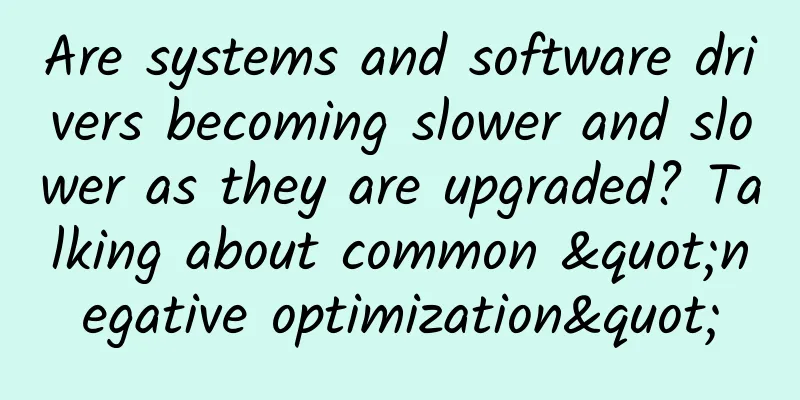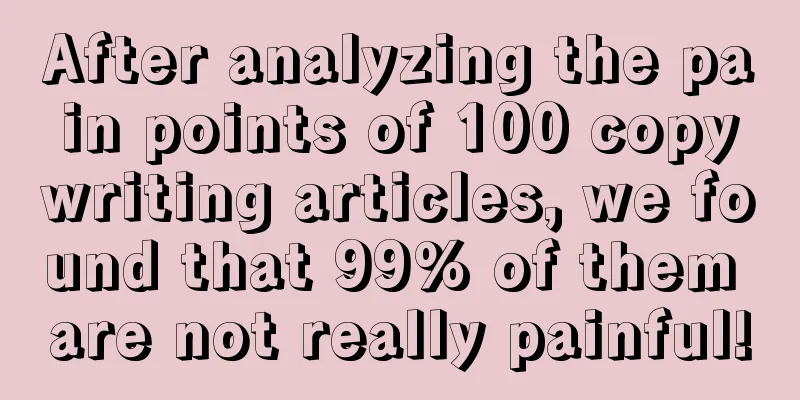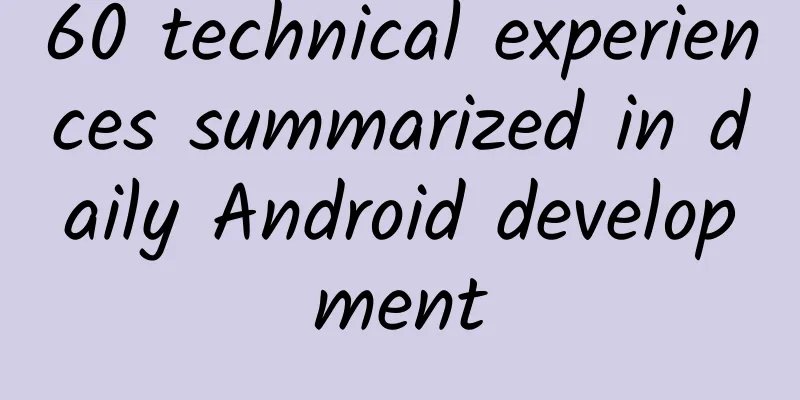Are systems and software drivers becoming slower and slower as they are upgraded? Talking about common "negative optimization"

|
There has been a lot of talk about "negative optimization". Graphics card players talk about "negative optimization" in the sense that hydrogen bombs turn into atomic bombs, and the performance of old cards decreases instead of improving when new drivers are released; mobile phone players talk about "negative optimization" in the sense that the new system pushes the world to the ground, and the iPhone instantly becomes as slow as Symbian. That's right, in this fast-developing information age, new software and technologies emerge in an endless stream, but these new things do not necessarily bring better experiences to users. It seems that the situation that the new version of software, system, driver, etc. is worse than the old version is not an urban legend. Does the phenomenon of "negative optimization" really exist? If it does, why do developers feed it so much shit? Today, let's talk about the topic of "negative optimization". New software is inevitably "negatively optimized": Andy-Beer's Law Logically speaking, new products need to be optimized and provide better user experience than old products, so that consumers will pay for them. However, the phenomenon of new software being slower and more stuck than old software is endless. In the past, there was the tragedy of Windows Vista wreaking havoc on user memory, and recently there was the tragedy of the new iOS system killing apps in the background. The experience of new software is not necessarily better than that of old software. Despite Apple's excellent combination of software and hardware, the new version of iOS is often "negatively optimized" in terms of performance Why did it become like this? The new version of the software brings a more beautiful interface and more powerful functions, which together should bring a better user experience; the good time of immersing in a brand new user experience is already within reach, but why did it become like this? This has to mention the industry-famous "Andy Bill's Law". The so-called Andy-Bill Law, Andy refers to Andy Ruff, the former CEO of Intel, and Bill refers to Bill Gates, who is well known to everyone. This law has severely criticized these two IT giants. The meaning of the Andy-Bill Law is that whatever Andy gives, Bill takes; no matter how powerful the hardware produced by Intel is, Microsoft will use increasingly bloated systems and software to eat up the increased hardware performance. Although this law refers to Intel and Microsoft, it does not feel out of place when applied to other software and hardware manufacturers. The Andy-Bill Law actually describes the problem of software bloat. Intel's Andy and Microsoft's Bill, this law made the Wintel alliance a lot of money Whether it is a new software with a more beautiful interface or more powerful functions, it requires more powerful hardware as a foundation. You can't expect Pentium MMX to run the Aero special effects of the Windows system. Moore's Law allows "chip performance to double every 18 months and the price to halve", but Andy Bill's Law is enough to make Moore's Law go to waste. If your wallet does not keep up with the growth of Moore's Law and you don't replace new hardware, it will be difficult to enjoy the pleasure brought by the new software. Under the influence of Andy Bill's Law, the new software becomes "negative optimization". QQ's functions and interface are completely different from those a decade ago, and the hardware requirements have also changed dramatically. Andy Bill's Law also has another characteristic, that is, the more obvious the effect of Moore's Law is and the faster the platform changes, the more likely it is to have software bloat. A good counterexample is the game console platform. The hardware of the game console is upgraded very slowly and has not been replaced for several years, but the requirements of the game for hardware have not risen. In fact, the later the game, the better the hardware optimization. This is mainly because the closed and stable platform is conducive to developers to work hard. However, mobile phones that are replaced once a year or even every six months cannot do this at all. Software applications have to follow the rapidly evolving hardware platform updates, and it is natural that the optimization effect is difficult to guarantee. Mobile platforms evolve the fastest, so negative optimization is also the most obvious. Apps and systems are generally becoming more and more stuck. In short, in order to fully utilize the performance of new hardware, software developers will try to cram more features into the software, but these things are not friendly to old hardware. The only way to break the "negative optimization" brought about by Andy Bill's Law is to work hard to make money. Negative optimization caused by developer negligence: not paying attention Although the development of "negative optimization" in software is almost inevitable due to Andy Bill's Law, there are also cases of failure caused by human error in the course of history. Some bad "negative optimization" is completely self-inflicted, and you can't blame it on the "general trend". This is often caused by the limited ability or negligence of developers. Here are some examples for you to feel. Android audio architecture For a long time, there has been a saying among mobile phone users that the sound quality of Android phones is far inferior to that of iOS. Is this really the case? In most cases, this statement is indeed true. The reason is simple: Google is not attentive to the Android audio part, and some improper designs have caused "negative optimization" of Android sound quality. In the Android 2.X era, there was a very serious SRC problem in sound quality. The so-called SRC problem refers to the resampling of the audio sampling rate. For example, the audio with a sampling rate of 44.1kHz is SRCed to 48kHz. This non-integer multiple of SRC will cause sound quality loss. In the Android 2.X era, the Android system will force the 48kHz audio to be converted to 44.1kHz. After that, the Qualcomm chip will force the 44.1kHz to be SRCed to 48kHz output. After two non-integer multiples of SRC, the sound quality is terrible. This is why Qualcomm Android causes a sound quality tragedy. Non-integer multiples of SRC will damage the original waveform and impair the sound quality. Can this problem be avoided? In fact, the problem can be solved by modifying the underlying audio driver. However, Google and Qualcomm did not take the right solution. In order to solve the problem of sound quality degradation, the new solution introduced by Google and Qualcomm does not automatically switch the output sampling rate according to the original audio, but uses a high-precision algorithm for SRC. In Qualcomm's QRD solution, the Android system audio using Qualcomm chips will force SRC to 48kHz. The new SRC algorithm works well, and the sound quality has indeed improved compared to before. However, this does not fundamentally solve the problem. No matter how high the precision of the non-integer multiple SRC is, it will inevitably lead to deterioration of sound quality. At the same time, the high-precision SRC algorithm also has high requirements for hardware, which has caused some mobile phones to freeze, heat up, consume power, and even crackle when playing songs. These negative effects have appeared on Google's own Nexus phones. When system resources are tight, the experience is even worse than before. Now many domestic mobile phones are using the slogan of Hifi. Whether they are Hifi or not is not the question, but many of them have solved the problem of SRC. So how to completely solve the problem? In fact, third-party mobile phone manufacturers have already handed in the answer - just output the correct sampling rate and do not perform SRC. Many mobile phone manufacturers, especially domestic manufacturers such as VIVO, Meizu, Xiaomi and other manufacturers have solved the SRC problem, which is even earlier than the time when Google improved the SRC algorithm. At the same time, there are wild developers in the XDA forum who have given a solution to completely solve SRC. However, Google's official native system has not yet completely solved the problem. When Android L was released, it said that the sound quality was optimized, but until now Android's sound quality is still defective. This kind of "negative optimization" in sound quality should not happen. ◆Game transplant In order to let new players feel the charm of old games, many manufacturers will port old games to new platforms. If the developers are more careful, they will fully explore the advantages of the new platform to make the old games more attractive. However, the reality is cruel. In most cases, the ported games are not only not optimized, but also "negatively optimized". It's good enough to be playable! It is very common for ported games to be "negatively optimized". For example, Koei Tecmo's "Dead or Alive 5" was ported from a game console to a more powerful PC platform. Not only did the image quality drop, but selling points such as breast shaking were also cut off. Another example is "Ninja Gaiden 2", which was ported from PS3 to PSV. The image quality drop is understandable, but it is difficult to understand that the game cannot be completed - there is a level in this game that requires two players to cooperate (the AI is not competent) to pass in order to get a trophy, but the PSV version cancels the online function, making it impossible to get the trophy. These "negative optimizations" should obviously not occur. A game that received rave reviews on the console platform received a lot of negative reviews after it was launched on PC. You can imagine what kind of "negative optimization" it is. There are also examples of well-optimized ported games, such as the PS4 port of The Last of Us, which has received rave reviews for its optimization effect. However, more game manufacturers just want to make a quick buck on the new platform and are too lazy to even reheat old games, resulting in "negative optimization." ◆Antivirus software update causes accidental killing If the above "negative optimization" only affects usage, then this can really be regarded as damaging production. Many antivirus software have experienced large-scale mistaken kills when updating the virus database, and even killed system files, causing the computer to be unable to boot! For example, Avast's "2009-12-03-0" virus database has experienced large-scale mistaken kills, McAfee's "DAT 5664" virus database has killed system files as viruses, causing blue screens, and Norton has also experienced similar situations. Many antivirus software have accidentally killed the computer, and even caused a blue screen. The virus database update was originally intended to optimize the anti-virus performance of the anti-virus software, but the accidental killing caused by it was obviously caused by insufficient testing. This kind of "negative optimization" should never happen. In addition to the examples above, there are many other "negative optimizations" caused by human negligence, which I will not list one by one here. Sometimes users know how to solve these "negative optimizations", but manufacturers just don't pay attention and don't take action, which is very annoying. The most unscrupulous "negative optimization": profit-driven If the "negative optimization" caused by human negligence is just annoying, then the "negative optimization" caused intentionally by profit is simply a crime. The current atmosphere is very bad. Some developers try their best to make their application software rogue for the sake of immediate profit. When the software becomes rogue, it naturally brings "negative optimization". I don't know when it started, but all kinds of software suddenly like to stuff strange things into themselves. A good chat software suddenly has news browsing, security and antivirus functions; a good browser suddenly has security and antivirus social chat functions; a good antivirus software suddenly has social chat news browsing functions. Usually, installing three software can get three functions, but now installing three software can get nine functions. What do you mean, they are all duplicate functions? I don't hear it. In short, one tablet is equivalent to three tablets, the effect is very good, and it is specially used to treat excessive computer performance! Chat software all comes with an app store, so are you afraid? Behind these behaviors, there is a profit drive. Currently, the IT industry is in a period of drastic transformation from desktop to mobile, and from local to cloud, and new application environments are emerging one after another. Affected by the overall environment of the industry, software specializing in a certain function is becoming less and less, and developers are eager to dominate the user's usage environment with an installation package to pave the way for their future and money. Under this guiding ideology, the blacksmiths also began to harvest wheat, and the cooks began to be responsible for steelmaking, and various software applications grew a lot of extra fat. In addition, some domestic software developers will ignore user experience and add "negative optimization" to their products for the sake of performance. For example, some companies evaluate employees' performance based on the activity of software applications, so the development department will be cunning and automatically wake up the software in the background even if it is not running to increase activity. This will undoubtedly increase system resource consumption and cause "negative optimization". In short, in the current environment, if you kill two or three rogues, there will be countless others to come. I am afraid that for a relatively long period of time, the "negative optimization" brought by rogue software will continue to visit your mobile phones and computers. On the Android platform, just checking the wake-up trigger mechanism of any App can scare you to death There is a rumor among gamers about negative optimization of drivers. For example, graphics card manufacturers will use new drivers to suppress the performance of old graphics cards so that gamers can spend money to buy new nuclear bombs. Gamers speculate that based on the profit of selling new graphics cards, manufacturers have the motivation to use new drivers to reduce the performance of old graphics cards. However, after actual testing on our website, this is not the case. Below is the test chart, let's take a look. Performance of old graphics card GTX780Ti under different versions of drivers Performance of the old graphics card R9 290X under different versions of drivers It can be seen that no matter it is an Nvidia card or an A card, the new driver has no performance degradation on the old card. For more details, please click on the article below. But is it true that hardware drivers do not have negative optimization? Not necessarily. Sometimes driver updates can also bring some problems. For example, Win10 once automatically updated the driver of the N card, causing a malfunction. However, these are not "negative optimizations" based on interests, but rather development negligence. In fact, modifying the driver to reduce the performance of the graphics card also requires manpower and time costs, and it is easy to be caught. Manufacturers should not do such despicable things. Summarize Is “negative optimization” really unavoidable? According to the “Andy Bill Law”, in the long run, the demand for hardware from software is indeed increasing. However, it is not that there are no new versions of software that are better optimized than the old ones. For example, from Android 5 to Android 7, from Vista to Win7, the new versions of the system are indeed more efficient. And the "negative optimization" caused by developer negligence or even profit-driven is not a technical problem to solve. I hope that developers can consider user experience more and reduce the "negative optimization" in their products. As a winner of Toutiao's Qingyun Plan and Baijiahao's Bai+ Plan, the 2019 Baidu Digital Author of the Year, the Baijiahao's Most Popular Author in the Technology Field, the 2019 Sogou Technology and Culture Author, and the 2021 Baijiahao Quarterly Influential Creator, he has won many awards, including the 2013 Sohu Best Industry Media Person, the 2015 China New Media Entrepreneurship Competition Beijing Third Place, the 2015 Guangmang Experience Award, the 2015 China New Media Entrepreneurship Competition Finals Third Place, and the 2018 Baidu Dynamic Annual Powerful Celebrity. |
<<: Qvod officially returns to the familiar taste but not the original formula
>>: What is the experience of using a 64GB computer? It feels like it will take off
Recommend
Why do you always fail in promotion?
After three months of closed development, the App...
Cash loan ads invaded Douyin, spending 3 million yuan in one day, revealing the list of 20 Internet finance companies
√ With 150 million daily active users, the first ...
up to date! Reference data of 39 information flow platforms!!
The November data of major information flow platf...
Are green beans not allowed at dinner parties? Beware: Eating this vegetable undercooked can cause poisoning
"Baba Banquet" is a kind of open-air ba...
How do keywords leverage big accounts? Point 5 is the most important!
During the just-passed Double 11, traffic and con...
What are the differences between chargers of different sizes?
"Chargers come in different sizes. Are there...
How to attract traffic to products? How to get users hooked?
In traffic diversion , we not only need to pursue...
6 information flow industry cases and delivery data, form costs exposed!
Today, Qingguajun will share with you the analysi...
What are the functions of the Guangzhou Insurance Mini Program? How much does it cost to develop a WeChat insurance mini program?
Not long ago, a colleague of mine bought another i...
The more "mud" you rub off during the shower, the cleaner you will be. Is this true?
Author: Xu Lang Popular Science Creator Reviewer:...
Tencent Youlianghui’s strategy for achieving explosive advertising volume!
When I came to the company in the morning, the fi...
How to save the disordered biological clock in the "reversed day and night" holiday life?
Planning: Li Peiyuan Editor: Dong Xiaoxian Review...
Cocos Play: The best solution for mobile web games
At the just-concluded ChinaJoy conference, Cocos ...
Breaking news! A 5.1-magnitude earthquake occurred in Zhangye, Gansu! In the face of the earthquake, please remember the knowledge of self-rescue and mutual rescue
According to the official measurement of the Chin...
Why are distances at sea expressed in nautical miles instead of kilometers?
We are already very familiar with the commonly us...









